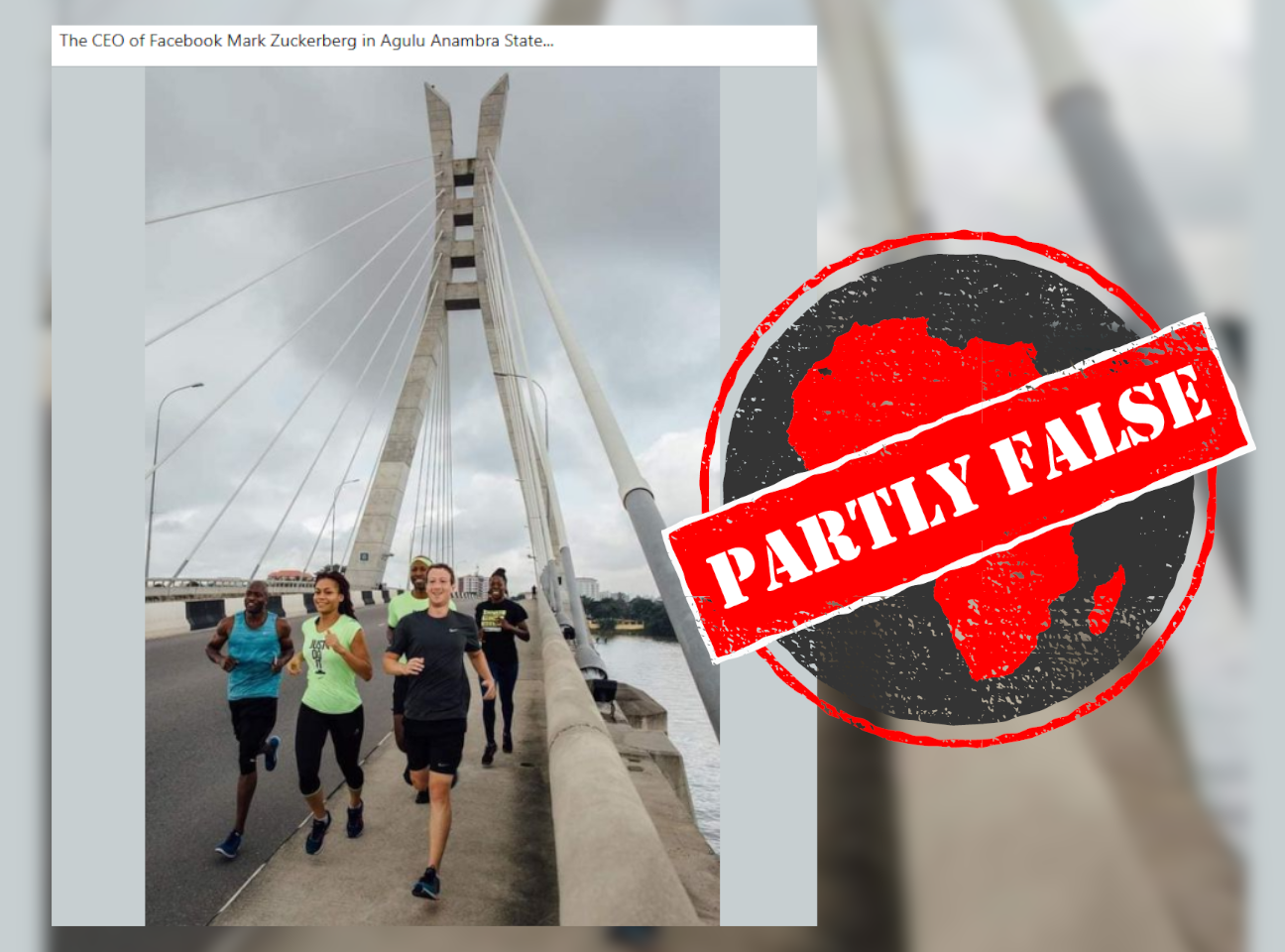IN SHORT: Mark Zuckerberg, co-founder and chief exec of Facebook, jogged across a bridge once in Nigeria. But in Lagos state, not east-central Anambra state, and in 2016.
“The CEO of Facebook Mark Zuckerberg in Agulu Anambra State,” reads the caption of a photo posted on Facebook on 3 January 2023.
The photo shows Mark Zuckerberg jogging across a bridge with four identified people. Zuckerberg is the chief executive of Meta, Facebook’s parent company, and co-founded Facebook.
Anambra state is located in east-central Nigeria. Agulu is a large town in Anambra state.
In August 2016, Zuckerberg made a surprise visit to Lagos state in southwestern Nigeria. His first stop was a local innovation centre and technology hub in Yaba, an area on the mainland of Lagos. It is known as Nigeria’s Silicon Valley, after the region south of San Francisco in California, United States, home to many tech companies, including Facebook.
But is this a photo of Zuckerberg exercising taken in Agulu? We checked.

Photo from Lagos, not Agulu
A reverse image search reveals that the photo was taken during Zuckerberg’s visit to Lagos state.
On 31 August 2016, Zuckerberg posted the same photo on his Facebook page with the caption: “Quick run this morning across the Ikoyi Bridge with entrepreneurs in the Lagos Road Warriors running club. Best way to see a city!”
The Facebook page which posted the photo in January 2023 describes itself as “a group where all discussions about politics are welcomed”.
Posting a photo of Zuckerberg and claiming he was jogging in Agulu could be an attempt to attract social media users’ attention.
Peter Obi, the presidential candidate of the Labour Party in the 2023 Nigerian general elections, is from Agulu. But there’s no evidence Meta chief exec Mark Zuckerberg has ever set foot there.
Republish our content for free
For publishers: what to do if your post is rated false
A fact-checker has rated your Facebook or Instagram post as “false”, “altered”, “partly false” or “missing context”. This could have serious consequences. What do you do?
Click on our guide for the steps you should follow.
Publishers guideAfrica Check teams up with Facebook
Africa Check is a partner in Meta's third-party fact-checking programme to help stop the spread of false information on social media.
The content we rate as “false” will be downgraded on Facebook and Instagram. This means fewer people will see it.
You can also help identify false information on Facebook. This guide explains how.


Add new comment